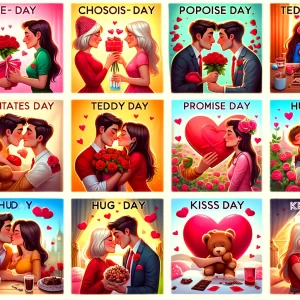A meme is an idea or habit that is pass on between people and generations through imitation. What is memes mean an example of a meme is the cultural tradition of women wearing skirts.
A cultural idea, a value, a habit or even something like a melody is a meme if it is taken from another person. A meme, pronounced “Meem”, will change over time, as younger children want to wear the exact same clothes but eventually develop their own, albeit similar, styles. Recently, the meme has become commonly used to refer to Internet memes – images, videos, or even slang words shared among Internet users.
Definitions of Meme
a funny picture, text or video that spreads quickly through social media.
a cultural unit (an idea or a value or a pattern of behavior) that is transmitted from one person to another by non-genetic means (such as by imitation)
The definition of a meme is a belief, trend, or behavior that is spread from generation to generation by repeated use or imitation, or an image or information that is rapidly disseminated by Internet users.
A concept, belief or practice conceived as a unit of cultural information that can be transmitted from person to person, subject to influences analogous to natural selection.
Also Read: Meme Lover Memes Will Make Your Boring Day Happiest
What is a Meme?
Now, you might be wondering how to pronounce the word meme. The correct pronunciation is meme (rhymes with dream). The modern-day definition of a meme is a humorous image, video, piece of text, or GIF that is spread across the internet, typically on social media, and often with slight variations. Memes can be create by anyone and can be about anything, from current events to mundane tasks, to pop culture references.
The length of a meme varies. Because they can take the form of images, symbols, text, videos, or GIFs, they can be as short as a single image or phrase and as long as a multi-minute video with an elaborate narrative. Some memes have short-lived bursts of popularity on social media, while others endure for years.
Memes appear almost everywhere you find digital files being shared, including:
- Social media platforms, such as Twitter, Facebook, Instagram, and TikTok
- Online communities like Reddit and Tumblr
- Messaging apps, such as WhatsApp, Discord, and Telegram
- Image-sharing sites like Imgur and Flickr
- Online forums and discussion boards
Where do Memes come from?
The concept of memes traces its roots to biologist Richard Dawkins’s 1976 book, The Selfish Gene. Dawkins defined a meme as a cultural unit that spreads from person to person, much as genes spread through reproduction. The term meme itself comes from the Greek word mamma, which means “that which is imitated.”
Dawkins’s book shows that examples of memes go back centuries. But these days, when we think of memes, internet memes are usually what come to mind. The first internet meme is widely consider to be the “Dancing Baby,” a 3D animated baby doing a cha-cha dance that became popular in the late 1990s.
What’s the purpose of a meme?
Memes serve a variety of purposes, including the following.
- Providing humor, analogy, or entertainment
- Expressing emotions and feelings
- Conveying cultural references and social commentary
- Fostering a sense of community and belonging through shared experiences
How to identify a meme
Memes are identifiable because they are a widespread phenomenon. Most memes will repeat and shared multiple times—you may even see multiple iterations of the same meme. They usually include some element of humor or sarcasm combined with a visual element that is culturally significant.
To identify a meme, you can look for the following characteristics:
- A recognizable format or style
- Humor or irony
- Easily shareable on the internet
- Pop culture or current-event references
It’s easy to confuse memes with GIFs, and sometimes GIFs are memes, but not all of them. A meme often includes an image with humorous or satirical text overlayed on top. A GIF, on the other hand, is simply a short, looping video clip.
History of Meme?
In his 1976 book The Selfish Gene, British scientist Richard Dawkins defended his new word meme, which he called “a unit of cultural transmission.” Having first considered, and then rejected, the mimeo, he wrote: “The mimeo comes from a suitable Greek root, but I want a monosyllable that sounds a bit like the gene.” (The correct Greek root was mim-, meaning “mime” or “imitate.” The English suffix -eme indicates a distinctive unit of language structure, as in grapheme, lexeme, and phoneme.) Evolve, eventually developing the meaning know to anyone who spends time online, where it is most often use to refer to those silly captioned photos that the internet can’t seem to get enough of.
Merriam-Webster defines “meme” as “an idea, behavior, style or usage that spreads from person to person within a culture” or “a fun or interesting element (such as an image or video). with captions) or a genre of element that is widespread online, especially through social media. ” That definition hasn’t always existed, hasn’t even existed for five years. The editors of the dictionary officially added the entry along with “emoji” and “clickbait” to the formal dictionary in May 2015.
Also Read: Funny Best Memes of This Year on Internet
Memes always have a mysterious, intriguing and confusing air to even the most computer savvy. Where they come from? More importantly, what do they mean? Modern science is also jumping on the meme train. A team of scientific researchers from University College London, Cyprus University of Technology, the University of Alabama at Birmingham and King’s College London met in September 2018 to investigate the internet’s most popular memes. In addition to putting together a definitive list of the world’s favorite memes, the academic study also explored the influences (both positive and negative) that memes have on different communities. Some memes are create just for fun by creative or bored internet users, but others are create with the express intention of going viral to promote political ideas.
Also Read: Funny Memes on Love | Funny Memes about Love and Relationships
With the endless number of memes scattered around the internet, it’s hard to keep track of them. Just when you’ve grasped the meaning of a hilarious meme. It has already become old news and has been replace by something equally enigmatic. Online forums like Tumblr, Twitter, 4chan, and Reddit are responsible for most meme infections. And with constant posting and sharing, finding the source of an original meme is easier say than done. Stacker searched Internet resources, pop culture publications, and databases like Know Your Meme to find 50 different memes and their meanings. While the almost self-replicating nature of these vague symbols can get boring. The memes within them can also bring people closer, as long as they have access to the internet.






